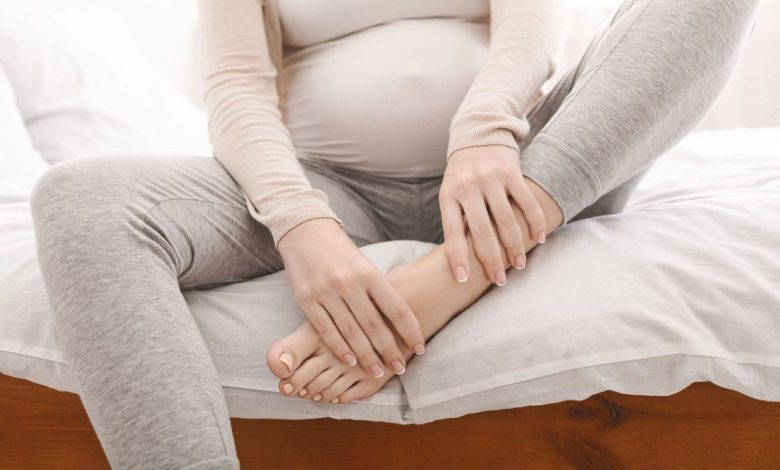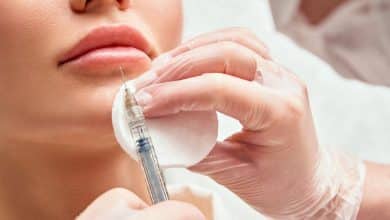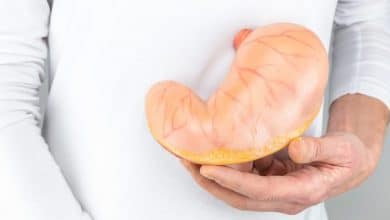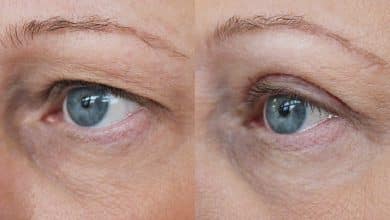What is the symptom of postpartum edema and how is it treated?

May be about Postpartum swelling You may also have questions. There are several reasons why swelling occurs after childbirth, which will be discussed further by the Snap Market blog. You may have thought that swelling is only limited to pregnancy, but unfortunately, this problem may also occur after childbirth. It is also possible to treat swelling after childbirth at home with some simple methods that we will introduce to you.
Symptoms of swelling after childbirth
Some of the symptoms of postpartum swelling include:
- Swelling of the hands and feet can be mild, moderate or severe.
- The skin of the hands, thighs and other swollen parts becomes inflamed, stretched, shiny and puffy.
- When you squeeze the skin, it sinks.
- Swelling may also affect the abdomen in addition to the arms and thighs.
The cause of abdominal swelling after childbirth
Postpartum edema is likely to occur in the face, abdomen, ankles, hands, thighs, and feet and may last for a week or more after delivery. Swelling may also occur in the area of your cesarean section, which will be a source of discomfort and pain.
During pregnancy, in order to feed and support yourself and the fetus, you produce about 50% more blood. Also, low protein concentration and blood dilution lead to a decrease in hemoglobin concentration and fluid accumulation. During childbirth, all this blood does not leave the body. A combination of extra blood, hormonal changes, and fluid retention can cause postpartum swelling. In the following, we have mentioned the main causes of swelling after childbirth:
- Hormone: During pregnancy, the body produces a lot of progesterone. A large amount of this hormone causes postpartum swelling.
- Enlargement of the uterus: When the uterus grows with the growth of the fetus, the pressure on the veins goes to the thighs.
- So the blood flow is limited in the lower part of the body.
- During pregnancy, fluids accumulate in the body and it will take time to reduce them after delivery.
- Intravenous fluids: Most mothers who have a cesarean section receive anesthetic drugs through intravenous fluids.
- Mothers who give birth naturally receive drugs such as pitocin and special fluids.
- In this way, excess fluids accumulate in their bodies for several days.
Swelling of the feet after childbirth
Pushing to give birth to a baby collects blood and fluids in the body more in the hands and feet. This may lead to swelling of the fingers, hands, thighs, feet, and also the face. But this swelling after delivery should disappear by itself in about a week.
Leg swelling after cesarean section
Swelling in the legs and thighs is common in the early days after cesarean section. You may feel that your feet have increased in size after the swelling has subsided. Your foot may become enlarged due to loosening of the ligaments. This complication gets better by itself and is very common. So there is no need to worry.
Dangerous symptoms after cesarean section
Most cases of postpartum swelling are normal and disappear. But sometimes the swelling that occurs in the days after delivery may be a sign of an underlying disease that requires contacting a doctor:
- Swelling suddenly appears in an area of your body.
- Your swelling will increase after a few days instead of decreasing.
- If you put pressure on the swollen area, you will notice a hollow state in your skin and it will tighten it for more than a few minutes.
- Feel pain or burning sensation in the leg along with swelling.
- One leg is more swollen than the other or there is redness, cramping and heat with swelling in one leg.
- In addition to postpartum edema, have other symptoms of preeclampsia. For example, experience severe headaches, vomiting, blurred vision or sensitivity to light.
- Have chest pain or difficulty breathing.
- Your cesarean wound is swollen and accompanied by increased pain, bleeding, or discharge of pus or fluids.
There are two types of postpartum complications that are dangerous and should be taken care of:
- Deep vein thrombosis: Deep vein thrombosis can cause death within hours. This emergency complication requires heparin injection and immediate hospitalization. Call your doctor if you notice swelling of the thighs and ankles, pain in one or both legs, redness of the skin in the affected leg, and visible and severely prominent veins.
- Preeclampsia: Postpartum preeclampsia can occur immediately after the baby is born, or four to six weeks later. Symptoms of postpartum preeclampsia include sweaty hands and feet, high blood pressure, severe headache, changes in vision, upper abdominal pain, dizziness, and decreased urination.
Treatment of postpartum edema
Postpartum swelling in familiar areas such as hands, thighs, legs, face, and back should subside within a week. During this time, the kidneys have to do more work to remove excess fluid from the body. In this way, you may experience frequent urination. Excess fluids must also be removed from the body in the form of sweat.
Ice compress can also help to reduce the swelling of cesarean scar. In any case, if the swelling of your body parts does not go away during this time, you can help reduce your postpartum swelling by using the following treatments:
Pasha
Soak your feet in a mixture of aromatherapy oil and water. Use cedar oil to improve blood flow and prevent varicose veins. Lavender or chamomile oil reduces pain and discomfort.
healthy diet
A healthy diet is essential for women after pregnancy. When you eat well, you can flush out excess fluids and also provide more energy for your baby. Eat foods rich in protein, fresh fruits and vegetables, and complex carbohydrates. Foods with high potassium also reduce postpartum swelling. Avoid processed foods because they contain sodium (salt) and increase swelling.
Eat foods containing vitamin C and E. For vitamin C, eat cabbage, broccoli, tomatoes, strawberries, summer fruits, potatoes, red and green bell peppers, and citrus fruits. For vitamin E, eat almonds, cashews, margarine, corn oil, wheat germ, sweet corn, vegetable oils (corn, wheat germ, and soybean), and sunflower seeds.
More fluids
Drinking a lot of fluids signals the body to get rid of the fluids it has accumulated. This can help reduce fluid in the body. Be sure to drink plenty of fluids and empty your bladder regularly. More water, apples, and citrus fruits are all natural diuretics that help reduce postpartum swelling.
Keeping hands and feet up
Keep your arms and legs elevated for about 30 minutes every day. They should be above the level of your heart to allow blood to flow to these areas.
physical activity
Do exercise and moderate physical activity, because you help improve blood circulation and remove fluids from the body through sweating. Taking care of a baby is considered a kind of exercise.
massage
This is great for blood circulation and removal of accumulated fluids in the body. Someone should gently massage your thighs and legs from bottom to top. You can use oils such as grape seed oil for massage.
Avoid crossing your legs and standing for a long time. While lying down, place your legs above your hips. Keep your feet above your heart level. This helps with better blood circulation and reduces swelling after delivery.
stay cool
Stay as cool as possible, as heat can cause swelling. Since you just graduated, stay indoors and ensure proper air circulation.
A few recommendations
- Do not wear tight clothes and do not use jewelry that obstructs blood flow and causes swelling.
- If the doctor allows, you can lie down in the tub to relax. This also helps to reduce swelling after childbirth. To do this, lie on your side to help blood flow better and thus reduce swelling.
- Do not use vitamin supplements before a doctor’s prescription. Because it can increase the possibility of preeclampsia after delivery.
- You can use supportive socks to reduce postpartum swelling.
Conclusion
Pregnancy and the period after it are challenging for every woman. Postpartum swelling It is a common complication that many women experience after pregnancy. Therefore, if you tolerate this swelling for a few days and observe the mentioned items, you can see its improvement.








